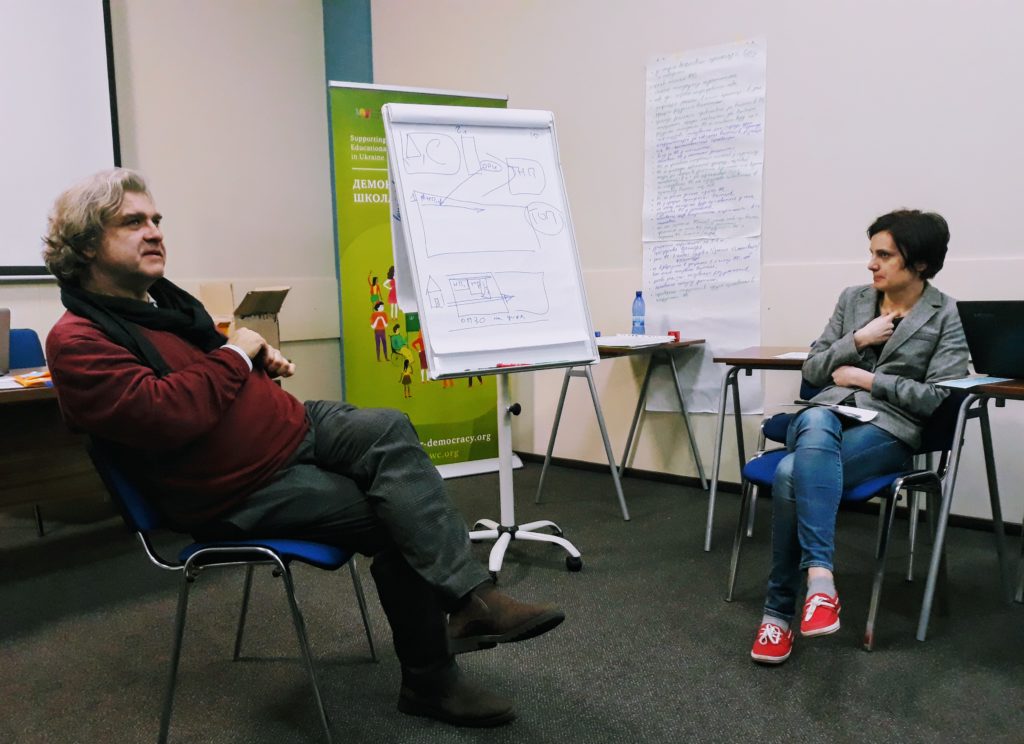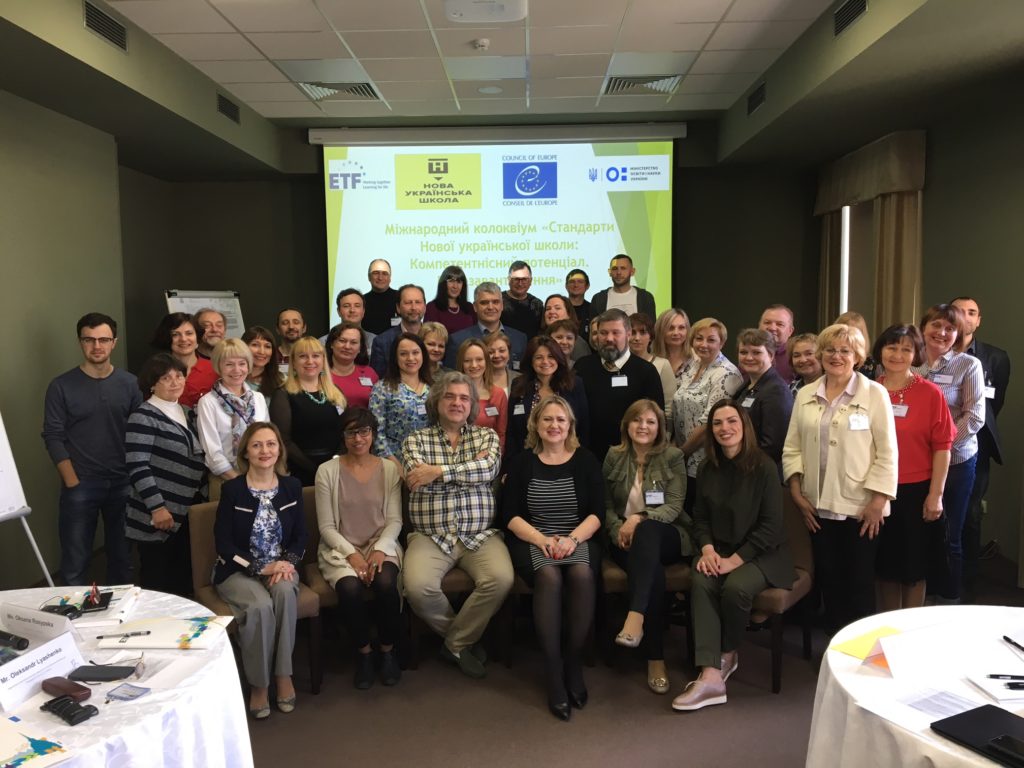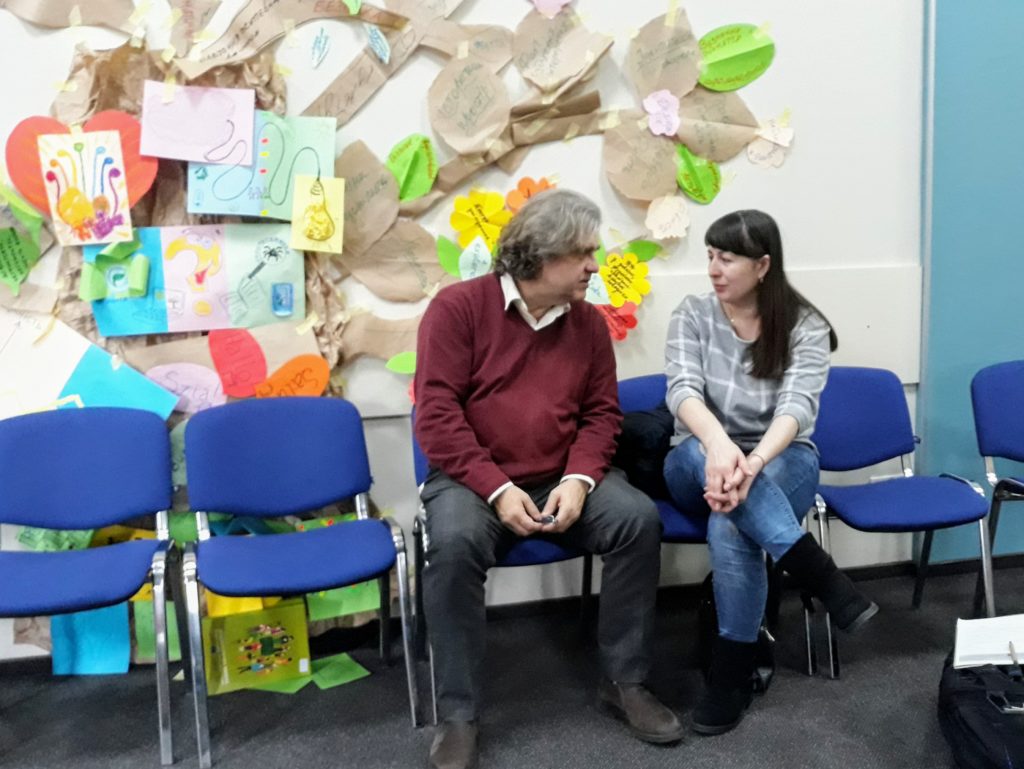Ukraine recently approved a new competence based curriculum for basic secondary education. “The main change is that students will be offered the possibility to influence more the way things are being taught and that the teachers will have a chance to accommodate the students’ requests, says Roman Shyyan, deputy director of the Reform support team in Ukraine
Last year, after a long journey spanning several years, Ukraine approved a new competence-based curriculum for basic secondary education. We talked with Roman Shyyan, deputy director of the Reform support team and leader of the working groups for the new curriculum.

EWC has been working with Roman Shyyan for several years now on creating the new Ukrainian school. The first success we had together was the curriculum reform for primary education, then this year the secondary education and now work has just started on similar reforms for pre-school.
The democratic approach, which is the moto of the European Wergeland Centre, is very important. It is a participatory approach where each contributor is heard, and common solutions are found based on the input from all concerned.
Roman Shyyan

“The competence approach was actually declared almost 20 years ago, but it was just a declaration. Now we hope that it becomes instrumental”, Shyyan declares optimistically.
We ask him what he thinks has changed from 20 years ago.
“The design of this document is instrumental, all the learning outcomes are described clearly, subject area by subject area also with indicators for assessment related to the learning outcomes. Now we are working with representatives of different professional communities on how to implement it properly and make it reality.”
“The main challenge is teachers’ capacity. There is a lot to do to in the field of professional development of the teachers. Ukrainian teachers are used to working with one study programme for each subject. Now we are talking about a variety. They must be able to choose relevant solutions for their kids. They can be co-authors of those solutions, develop their own modifications of the self-study programme, taking into account the local context. This is the challenge. But I think we have a chance to succeed because of the way we are doing this and the design of the programme.”
“EWC is a very good partner and supporter in this process. The centre has helped us work together as governments and ministers changed. The democratic approach, which is the moto of the European Wergeland Centre, is very important. It is a participatory approach where each contributor is heard, and common solutions are found based on the input from all concerned. EWC also supports schools in the development of their own educational programmes, creating ownership that is very important. Schools did not have this tradition to develop their own solutions. Now we must encourage them to do so. Horizontal networking will be important so that they can share their visions, solutions and experiences.”

Now the most important thing is to support the capacity building of schools to develop their own educational programmes and to support those school teams who are going to start work with 5th graders in the piloting of the new curriculum
Roman Shyyan
“The participatory approach is also the key to understand how the project has survived through changes of governments. The latest change in July was risky and it took time to explain the new team in the ministry what we were doing before they agreed to support it. Hopefully, the support will continue.”
“Now the most important thing is to support the capacity building of schools to develop their own educational programmes and to support those school teams who are going to start work with 5th graders in the piloting of the new curriculum”.
“We have started an intervention on Pre-School Education and it is important to make it relevant for the reforms which have been done for schools. There are a lot of visions, but not clear where we are going. The community of experts on preschool education are rather hermetic so they have their own world and it is important to make this connection between pre-school and the school world.
“EWC supported the involvement of international experts from Norway, Sweden and Poland but we are only at the beginning of this journey. The Ukrainian experts who have participated, openly told us during the reflections that they do not easily accept others point of view and approach. There is a lot to be done to rearrange this mindset and develop a shared vision which should be part of the internationally recognized worldwide process of development.